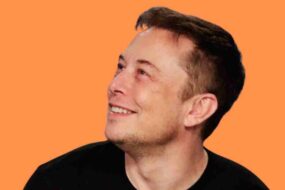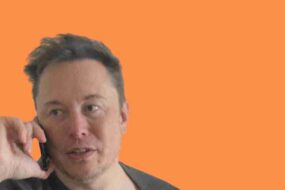
If you had never heard of democracy or lived in a world where voting required a certain level of knowledge or years of study, you might think that the idea of “one person, one vote” was a crazy way to run a society.
You would say something like, “Wait a minute, you want to give everyone an equal vote in choosing our government, no matter how stupid, clueless, or incontinent they are?” Do you want to put our country’s future in the hands of a changeable popularity contest that is paid for by lobbyists? You wouldn’t be the only one who didn’t believe it, though.
Winston Churchill said, “A five-minute conversation with the average voter is the best argument against democracy.” This is what Churchill thought.
Emil Cioran said of it that it was “a carnival of mediocrity.”
And one of my favorite writers, H. L. Mencken, said:
democracy is “the idea that the average people know what they want and deserve to have it good and hard.”
It’s not polite to say this out loud, but the average person and most people who are above average don’t know much about economics, sociology, and geopolitics, which are all important for making political decisions. Even if they did, almost none of the people running for their votes do, so it is unlikely that they will change their minds.
Democracy lasts because, despite all the evidence to the contrary, we still want to trust our fellow citizens on some level. We try to convince ourselves that if enough of us agree, then we must have made the right decision. To use another of H.L. Mencken’s wise sayings, we manage to convince ourselves that the sum of each person’s ignorance can lead to group knowledge.
No matter what the results are, just taking part in this experiment is interesting.
I’ve been trying to figure out why Elon’s “The Richest Man in the World” Musk’s purchase of Twitter has caused so much uproar. I mean, besides the (vastly exaggerated) “surge” in hate speech, the mass exodus of advertisers, and the hilariously bad way in which layoffs were handled. I’ve been trying to figure out why people are so worried about Musk buying Twitter.

I think this is because he is trying to make speech more democratic, which is an even more ridiculous goal than making a government more democratic.
Musk says that all the memes, erotica, and hot opinions on Twitter add up to a “cybernetic super-intelligence” And it looks like he thinks that following this “super-intelligence” wherever it goes is part of having “free speech.”
Musk said this on October 26, the day he was officially named Chief Twit: “One of the great things about Twitter is that it encourages citizen journalism. People can share news without an established bias.”
This sounds great, but it seems to gloss over the much more important problem of prejudice.
One way to look at what Musk did is that he used a Twitter poll to get out of being responsible. Musk posted the following under his poll asking if he should reactivate Donald Trump’s account: “Vox populi, vox Dei. The voice of the people can sometimes be heard as the voice of God.
By a vote of 52% to 48%, the “voice of God” said that Trump should be back in the office.
Even the incredibly stupid decision to “democratize journalism” by making it impossible to tell the difference between real news sources and anyone who feels insecure enough to pay $8 for a blue check next to their name is in line with the idea that “collective wisdom” is the same as “individual ignorance.”
None of this, though, is a defense of the right to speak freely. It’s kind of like getting a participation ribbon for letting your opinion be known.
The truth is that some points of view are more reasonable than others. Some claims are more true than others. There are some ideas that need to be thought about more than others. Most people aren’t willing to put in the time, effort, or brainpower that’s needed to even be a little bit right about something.
Up to this point, Twitter has not always been able to tell the difference between fact and fiction. There is a lot of room for improvement at Twitter, as shown by the mess with Hunter Biden’s laptop, the wrong labeling of COVID data as misinformation, and the fact that Jack Dorsey, Twitter’s co-founder, and former CEO, freely admitted that Twitter’s liberal bias causes problems within the company. Musk knows this to be true.
The question that needs to be asked is whether or not “one person, one view” is the best way to go about things.
It’s easy to argue, and true, that Twitter is a private company that can do whatever it wants. I’ve even said it myself. On the other hand, millions of people trust it as a source of information, whether or not the information it gives is correct.
So, democratizing speech is probably a good idea in a company full of super-smart rocket scientists and engineers working on self-driving cars. But let’s be kind and say that this level of intelligence is not typical on Twitter. This will help us think more positively about the idea. Alternately, the whole planet.
But I have to admit that, even though everything points to the opposite, I secretly hope it will work. I want to believe that most people will choose the truth when they have all the information. I need evidence that people are smart (as opposed to being dumb, panicky, dangerous animals). I can’t wait to see what happens when everyone is free to say what they think.
Some people have come to the conclusion that this is a crazy way to run a social media network. And let’s be clear: Musk will find out the hard way that this is true, so let’s not make it sound better than it is. But what the heck, even if there are no other benefits, it’s still interesting to take part in the experiment.









2 replies on “Elon Musk’s Free Speech ”
[…] Techie Legend […]
[…] Techie Legend […]